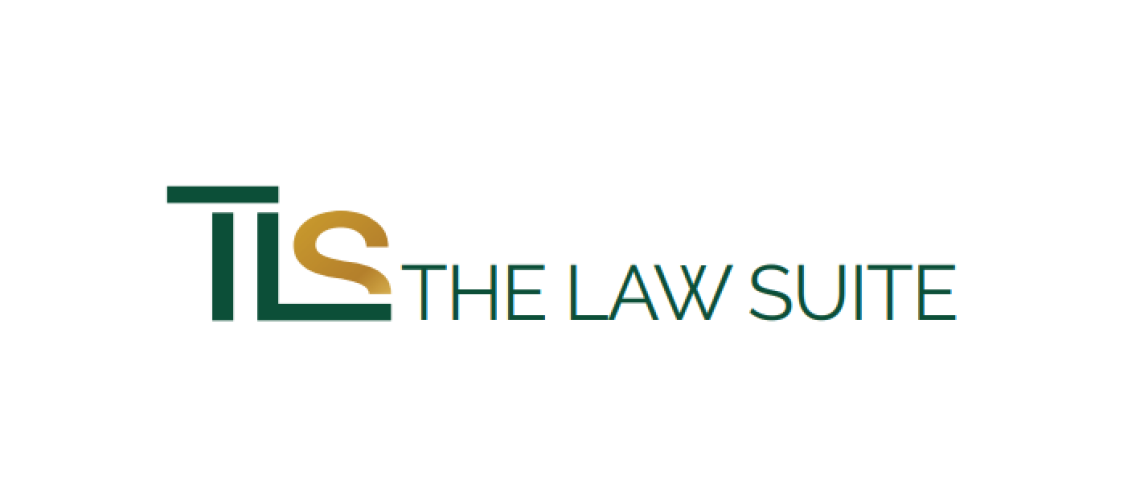Introduction
On 19th October 2022, President Muhammadu Buhari signed the Nigeria Startup Bill (now Nigeria Startup Act, 2022) (the “Startup Act” or the “Act”) into law. The new enactment has been greeted with enthusiasm by the stakeholders in the Startup ecosystem. Nigeria is now the third country in Africa, after Senegal and Tunisia, to have startup laws, with other countries at various stages of enacting the legislation. The expectation is that the Startup Act will significantly improve the ease of doing business and regulatory compliance, provide training facilities and fiscal incentives, and simultaneously reduce operating costs for Startups. The Startup Portal established under the Act will, among other things, serve as a one-stop centre for regulatory compliance and foster information exchange and collaboration between various stakeholders in the Nigerian startup ecosystem.
The Act defines “startup” as a company in existence for not more than 10 years, with its objectives being the creation, innovation, production, development or adoption of a unique digital technology, innovative product, service or process. Similarly, “startup ecosystem” means an environment comprising entrepreneurs, startups, capital providers, Federal Government and other stakeholders that interact to aid a startup. These definitions, though not without their limitations, are nonetheless helpful in clarifying the conceptual difficulty often experienced in trying to differentiate startups from other types of businesses that share some characteristics of the former, such as Small and Medium Enterprises (SMEs). The key defining feature is that startups leverage digital technology to drive innovative and/or disruptive services or products.
In recent years, Nigeria has experienced an increase in tech-talents, tech-companies and investors, making Nigeria home to some innovative and exciting technology startups in Africa, especially in FINTECH and e-Commerce. It is no surprise that Nigeria is home to 5 out of 7 unicorns in Africa, and indeed birthed the first unicorn on the continent, with Jumia reaching the $1 billion valuation in 2016. Nevertheless, this burgeoning tech ecosystem has faced various challenges impeding its growth and expansion. Lack of representation at the top levels of government, lack of access to funding, poor power supply, poor Internet connectivity, friction with various regulatory bodies, and lack of awareness and protection of intellectual property are few of those challenges in Nigeria. These factors make it difficult for startups to succeed in Nigeria. The enactment of the Startup Act (a brainchild of collaboration between the Federal Government and stakeholders in the startup ecosystem) has been touted as one major step towards addressing these challenges. In this write up, we will highlight the key provisions of the Startup Act, and offer critical comments and suggestions on how best to ensure its smooth implementation.
Key Provisions
1. Objectives of the Startup Act
One major innovation in modern legislative drafting is the use of objectives to convey the central idea behind legislation. The importance of having this provision cannot be over-emphasised, as it captures the underlying philosophy and policy framework that undergird the law in a snapshot. The objectives of the Startup Act are to:
- Provide a legal and institutional framework for the development of startups in Nigeria
- Provide an enabling environment for the establishment, development and operation of startups in Nigeria;
- Provide for the development and growth of technology-related talents; and
- Position Nigeria’s startup ecosystem as the leading digital technology centre in Africa, having excellent innovators with cutting-edge skills and explorable capacity.
In coming years, it is expected that the success or otherwise of the new law will be measured using these criteria.
2. Establishment of National Council for Digital Innovation and Entrepreneurship
The role of the National Council for Digital Innovation and Entrepreneurship (the “Council”) is to formulate policy, approve, develop and review programs and monitor implementation framework towards the realisation of the objectives of the Act. The Council’s power extends to the review of policies and directives of Ministries, Departments and Agencies (MDAs), which may affect the operation, establishment and investments in startups.
The composition of the 14-member Council is high level, with the President as the Chairman, whilst the key Ministries which directly impact the startup ecosystem are listed as members. There is no doubt that the Nigerian Startup ecosystem will always have dedicated representatives at the top levels of government, easy access to information, and a special platform to conduct necessary inquiries about their activities. The expected synergy between the Council and the National Information Technology Development Agency (NITDA), which serves as “the Secretariat” and operational structure of the Council, is commendable, as it will pave the way for smooth implementation of policies and initiatives that impact startups in Nigeria.
However, the power given to the President under section 6(2) of the Act to remove any member of the Council “if he is satisfied that it is not in the interest of the Council, Secretariat or public for the person appointed to continue in office” may create room for abuse. The wording of the provision leaves the grounds for such removal at the absolute discretion of the President, and there are no objective criteria to determine what is in the interest of the Council, Secretariat or public. For instance, an action may be in the interest of the public without necessarily having the blessing of the Council or Secretariat. The point being made is that the tripodal interest of the Council, Secretariat and public may not always align, thereby leading to possible conflict of interests.
Another concern is whether the Council is inclusive enough. One would have expected the inclusion of other key regulatory bodies or their representatives, such as the Securities and Exchange Commission, National Office for Technology Acquisition and Promotion (NOTAP), Corporate Affairs Commission, Nigerian Copyright Commission and the Registrar of Trademarks, Patents and Design, given their critical roles in the startup ecosystem. The Startup Act itself indeed recognises the roles of the aforementioned agencies in developing startups in Nigeria, by providing that the Secretariat will collaborate with them in the areas of registration and protection of intellectual property, raising funds through crowdfunding, technology transfer registration, etc. Having their representatives as members of the Council would have created room for more effective collaboration. Similarly, in our view, it would not have been a stretch to have a representative of Bankers’ Committees in the Council, given the role of finance and funding in the startup life circle.
3. Startup Labelling Process
An entity seeking recognition as a startup under the Act must first obtain a startup label after meeting certain requirements. The startup label is a certificate issued by the Secretariat to companies duly incorporated in Nigeria at the Corporate Affairs Commission and has existed for not more than 10 years from the date of incorporation. The business of such companies must include innovation, development, production, improvement, and commercialisation of a digital technology innovative product or process, among others.
To be eligible, a startup must have at least one-third of local shareholding held by one or more Nigerian founders or co-founder. Notably, the Act allows sole proprietorship and partners to apply for a startup label if they meet certain conditions. However, a sole proprietor or partnership shall be granted a pre-label status for a period of six months to enable the sole proprietorship or partnership comply with the requirements set out under the Act. Failure to comply with the conditions will lead to automatic loss of the pre-label status. The label is not available to an organisation which is a holding company or subsidiary of an existing company, which is not registered as a startup.
4. Benefits of Obtaining Startup Label
Ø Financial incentives: Startups can take advantage of the benefits offered under the Act by obtaining the startup label. One of such benefits is access to governmental funding from the proposed startup investment seed fund, which will provide labelled startups with finance even at an early stage.
Ø Training and capacity building: Startups can also benefit from the proposed trainings and capacity building programs, which will be facilitated by the Industrial Training Fund, incubators, Accelerators or any organisation, which partners with the Secretariat, for the training of entrepreneurs and their employees.
Ø Easy Access and Collaboration with regulators: By collaborating with other regulatory bodies in Nigeria, the Act proves its support to labelled startups in the light of some administrative challenges faced by startups when dealing with these regulatory bodies. This collaboration allows labelled startups to receive exclusive support and guidance when dealing with these organisations.
A separate section on the Startup Portal will be designated to ease the processes for labelled startups that conduct transactions at the Corporate Affairs Commission. Same applies to other regulators, such as the Nigerian Copyright Commission and the Trademarks, Patent, and Design Registries. Startups will be informed of their Intellectual Property Rights and how they can manage same.
With the Securities and Exchange Commission (SEC), startups can raise funds through crowdfunding using intermediaries licensed by the SEC. Labelled startups are also encouraged to seek listing on the Nigerian Exchange Limited (NGX), participate in the CBN’s regulatory sandbox, SEC’s regulatory incubation program, or any other regulatory sandbox program. By virtue of this Act, we can see that labelled startups can liaise with these regulatory bodies through the Startup Portal and other forums, obtain legitimate information and enjoy fast tracked processes.
Ø Accelerator and incubator programs: Among other incentives, the Act also gives labelled startups the opportunity to participate in Accelerator and incubator programs. These programs aim to provide startups with mentorship and educational assistance to aid their growth, and dedicated physical spaces and services that will support the establishment and development of these startups.
Lastly, an offshoot of this benefit is the creation of startup clusters, hubs and innovation parks in each state of the federation. At these hubs and parks, labelled startups can connect, collaborate with larger companies, collate expertise, and gain access to resources and professional services.
Ø Tax and other fiscal incentives: The statutory duty to pay tax can be a big challenge for companies, especially those in the early stages of existence. The Act grants certain tax and fiscal incentives to labelled startups to facilitate this duty. These incentives will allow the startups ample time to make a profit and enjoy a viable business. A cross section of such incentives are as follows:
- Simplification of the requirements of existing fiscal incentives
- Exemption from the payment of income tax for a period of 4 years, starting from the date on which the startup label was issued.
- Full deduction of any expenses on research and development which are wholly incurred in Nigeria
- Exemption from the restrictions placed by the Companies Income Tax Act.
- Exemption from capital gains tax and an investment tax credit equivalent to 30% of investment in labelled startups are granted to investors of all kinds. This enables labelled startups to attract investments and financial support from other private bodies or persons.
5. Obligations and Punitive Measures
While startups are bound to enjoy these numerous benefits, it is important to note that every benefit has an obligation to be maintained to continue reaping them. Thus, labelled startups must comply with all the extant laws governing businesses in Nigeria, maintain proper books of account, among others.
Default of any of the obligations as stated in the Act will attract a notification from the coordinator of such default, followed by a withdrawal of the label if the default is not rectified within thirty days. Note, however, if the startup finally rectifies this default, it may apply to the Secretariat for a re-issuance of the startup label.
6. Other Key Provisions
In addition to the provisions discussed above, it is important to mention these equally important provisions, which include:
- Startup Investment Seed Fund: The Fund is to be managed by the Nigerian Soverign Investment Authority (NSIA) and applied for the benefit of the labelled startup. There shall be paid into the Fund on an annual basis, a sum not less than N10 billion from sources to be approved by the Council. The Fund can be accessed by labelled startups and will also serve as early-stage finance for labelled startups, as recommended by the Fund Manager and approved by the Council. The Fund will also provide reliefs to technology laboratories, accelerators, incubators and hubs.
- Establishment of and development of standards and guidelines for Accelarator and Incubator Programme for Startups by the NITDA.
- Establishment of Clusters, Hubs, Innovation Parks and Technology Development Zones by the Council
- Establishment of Startup Support and Engagement Portal by the Secretariat with the approval of the Council. This portal shall serve as a platform through which a startup conducts the registration process with relevant MDAs, and shall, among other things, facilitate the issuance of a permit or license to a labelled startup. The Secretariat shall appoint a Co-Ordinator for the Startup Portal with the approval of the Council. The Co-Ordinator shall have at least 10 years experience in technology and entrepreneurship.
- Establishment of Startup Consultative Forum on the Startup Portal by the Secretariat with the approval of the Council. The role of the Forum is to provide a platform for information sharing and collaboration with the Nigerian startup ecosystem. The Forum shall comprise industry stakeholders and representatives registered on the Startup Portal and drawn from labeled startups, venture capitalists, angel investors, incubators, accelerators, innovation hubs and two civil society organisations involved in the advancement of technology and innovation.
Conclusion
As with any good law, the benefits and incentives provided under the Startup Act will become meaningful and tangible upon proper implementation. There are, however, other factors outside the Act which need to be addressed to make the Nigerian startup ecosystem competitive and attractive. First, the government needs to align its fiscal and monetary policies and address the erosion and free fall of the Naira which has made it riskier and unattractive to invest in Nigeria. Insecurity, rising inflation, volatility of the exchange rate, and infrastructural deficits are other major factors that may be a hurdle to the actualisation of the Act’s objectives. Although there are fiscal incentives under the Act, the issue of multiple taxation from State Governments still rears its ugly head. For instance, States governments collect personal income tax, business permit, capital gain tax and stamp duties on individual transactions, as well as other levies and taxes which impact the activities of the Startups in Nigeria.
To ensure proper harmonization of the entire value chain of regulatory frameworks, one would have expected a representation from the States’ Ministries of Finance or Governors Forum to be made a member of the Council. This would have helped in smoothening the friction in the fiscal policies of the States and the Federal Government and also addressed the problem of multiple taxation.
Again, given the financial strain, paucity of funds and budget deficit on the part of the Federal Government, as seen in recent times, it is unclear where the annual contribution of N10 Billion into the Startup Investment Seed Fund will be sourced.
The Act simply provides that the sources of the fund will be approved by the Council without mentioning those sources. It is also unclear on the specific criteria that qualify a labelled startup for funding. Startup founders are therefore advised to consult legal and investment professionals to help them navigate through the web of regulatory and incentive frameworks under the Act. That said, the Startup Act has been hailed as one of the best in Africa, and its broad and robust provisions will no doubt position Nigeria as a startup hub on the continent.
To get the Startup Act 2022, Fill the form below.
Authors
Prince Nwafuru, MCIArb (UK), ACIMC

[email protected]
Ifeoma Ben, LL.M, MCIArb (UK)

[email protected]
Chidera Arum

[email protected]
Please note that this article is for information purposes only and does not constitute legal advice.

